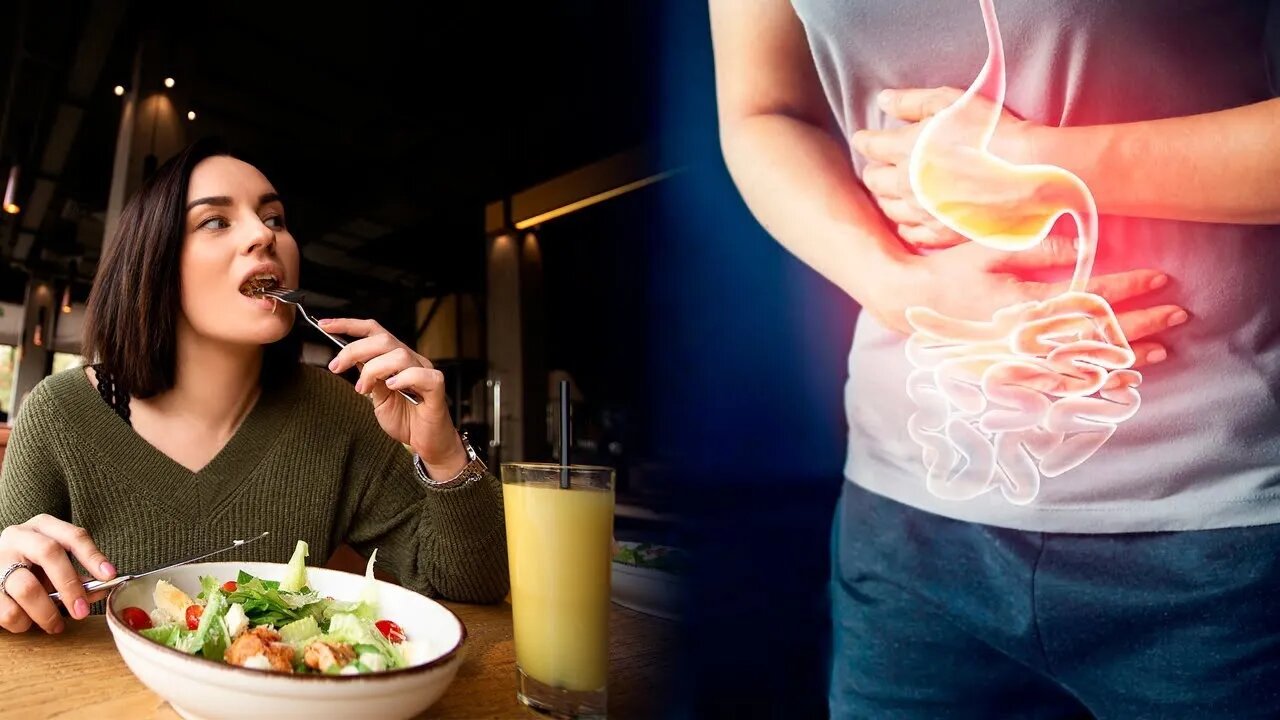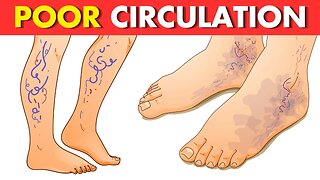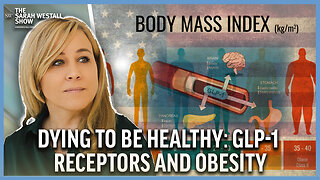Premium Only Content

This Simple Change Will Improve Your Digestion If You Are Over 40
Today we will talk about something to improve your digestion if you are over 40 years old.
Have you ever heard that drinking during meals makes you bloated?
A frequent question of people who want healthier habits is if drinking during meals is bad for health.
Did you know that the digestion process starts when we begin to chew the food?
When you drink too much during a meal, more than 7 ounces, the food in your mouth becomes a paste and gets pushed down the stomach by the liquids, instead of being broken into small pieces, as it should. This harms our body's ability to absorb vitamins and minerals, making the meals poorer.
Also, liquids dilute the gastric juice – the acid produced in the stomach - making it less potent. It loses its ability to digest food and absorb nutrients, like protein and glucose (carbs). That means you eat the foods, but your body doesn't absorb all the substances it needs.
If you want to nourish your body, drinking during your meals is a waste!
Filling the stomach with liquids makes the brain register a false sensation of satiety.
Besides, when you fill your stomach with water and food during the meal, the organ dilates - it can expand 40 times its size to accommodate the food. Then, the stomach needs more and more food to register the satiety. The number of calories you ingest raise, as do the numbers on the scale.
The best thing to do is eating during your meals and drink throughout the day to keep yourself hydrated.
This is the best way of feeling satiated without overeating!
Now tell us, did you know that already? Do you drink while eating?
0:00 How to Improve Your Digestion After 40 Years Old
0:42 Why It's Not Good to Drink Fluids While Eating
2:23 Is There a Best Time to Drink Water?
----------------------------------------
Facebook: https://bit.ly/38BWbw3
Pinterest: https://bit.ly/2Irvwa6
Disclaimer: The materials and the information contained on Natural Cures channel are provided for general and educational purposes only and do not constitute any legal, medical or other professional advice on any subject matter. These statements have not been evaluated by the FDA and are not intended to diagnose, treat or cure any disease. Always seek the advice of your physician or other qualified health provider prior to starting any new diet or treatment and with any questions you may have regarding a medical condition. If you have or suspect that you have a medical problem, promptly contact your health care provider.
-
 4:50
4:50
Natural Cures
1 year ago $1.10 earned5 Warning Signs of Poor Circulation and How to Fix It
2.85K1 -
 2:00:43
2:00:43
The Quartering
4 hours agoThe MAGA Wars Have Begun! Vivek & Elon Get Massive Backlash & Much More
34.6K14 -
 1:25:53
1:25:53
Kim Iversen
2 days agoStriking Back: Taking on the ADL’s Anti-Free Speech Agenda
30.3K9 -
 49:35
49:35
Donald Trump Jr.
7 hours agoA New Golden Age: Countdown to Inauguration Day | TRIGGERED Ep.202
113K128 -
 1:14:34
1:14:34
Michael Franzese
6 hours agoWhat's Behind Biden's Shocking Death Row Pardons?
46.6K32 -
 9:49
9:49
Tundra Tactical
5 hours ago $1.92 earnedThe Best Tundra Clips from 2024 Part 1.
16.3K4 -
 1:05:19
1:05:19
Sarah Westall
5 hours agoDying to Be Thin: Ozempic & Obesity, Shedding Massive Weight Safely Using GLP-1 Receptors, Dr. Kazer
28K9 -
 54:38
54:38
LFA TV
1 day agoThe Resistance Is Gone | Trumpet Daily 12.26.24 7PM EST
22.6K3 -
 58:14
58:14
theDaily302
14 hours agoThe Daily 302- Tim Ballard
30.1K1 -
 13:22
13:22
Stephen Gardner
7 hours ago🔥You'll NEVER Believe what Trump wants NOW!!
80.4K212